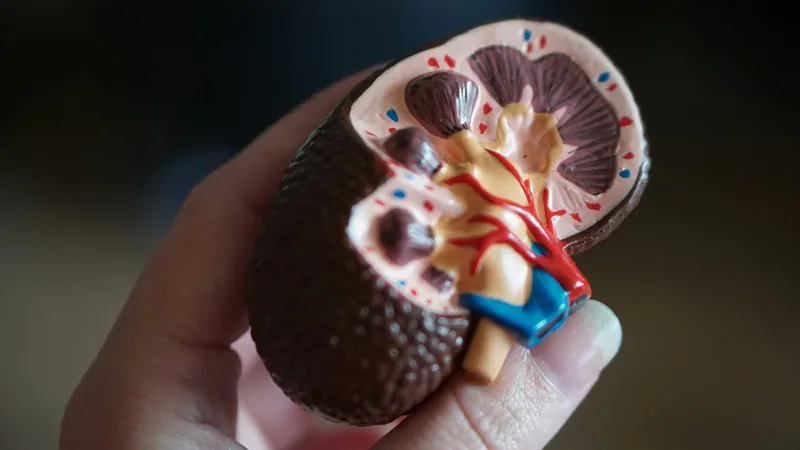
Is Your Wine Habit Making Your GI Issues Worse? New Study Reveals Shocking Truth!
2025-05-13
Author: Rajesh
The Startling Connection Between Wine and GI Disorders
Gastrointestinal (GI) disorders plague nearly 40% of people globally, affecting millions. Conditions like celiac disease, ulcerative colitis, and irritable bowel syndrome can turn food and drink into sources of misery for those affected. But what about wine? Could it be adding to the distress?
A Deep Dive into the Research
Researchers from Italy and France tackled this complex issue, aiming to clarify how wine impacts various GI disorders. Their recent narrative review in the journal *Nutrients* sought to untangle the mixed messages surrounding alcohol's effects on gut health.
What Did They Find?
The review encompassed several GI conditions, narrowing its focus on gastritis, gastroesophageal reflux disease (GERD), inflammatory bowel diseases (IBD) such as Crohn's disease, and irritable bowel syndrome (IBS). Each condition's relationship with wine yielded intriguing insights.
Insights on Specific GI Conditions
- **Gastritis:** Interestingly, moderate consumption of beer and wine could lower the risk of chronic atrophic gastritis in older adults. But is this a ticket to drink freely? Not so fast!
- **GERD:** For individuals with GERD, the study found a stark recommendation: steer clear of alcohol altogether, especially without treatment. It’s a slippery slope.
- **IBD:** The data here was conflicted. Some studies claim alcohol worsens symptoms for Crohn's and ulcerative colitis, while others see no change. The trend appears to lean towards alcohol exacerbating these conditions.
- **IBS:** Here, the effects were mixed. Light to moderate drinking showed minimal impact, but binge drinking significantly worsened symptoms for many.
- **Microscopic Colitis:** The review also linked alcohol consumption, particularly wine, with a heightened risk of this chronic inflammation.
What About Your Gut Microbiota?
The researchers were surprised by how little focus was placed on the gut microbiota's role in these studies. Unbalanced gut bacteria could be a culprit in GI disorders, leading to the crucial question: how does alcohol impact these bacteria?
Consider Your Choices
The bottom line? For many with GI disorders, consuming wine and other alcoholic beverages should be a thoughtful decision—some may need to abstain entirely, while others might manage in moderation.
Caring for Your Gut
Regardless of your drinking habits, nurturing your gut microbiota is paramount. Incorporate fermented foods—like yogurt, kefir, and sauerkraut—alongside fiber-rich foods to boost beneficial gut bacteria.
In the end, whether you raise a glass or not, prioritize your gut health and make informed choices that suit your unique body and situation!





 Brasil (PT)
Brasil (PT)
 Canada (EN)
Canada (EN)
 Chile (ES)
Chile (ES)
 Česko (CS)
Česko (CS)
 대한민국 (KO)
대한민국 (KO)
 España (ES)
España (ES)
 France (FR)
France (FR)
 Hong Kong (EN)
Hong Kong (EN)
 Italia (IT)
Italia (IT)
 日本 (JA)
日本 (JA)
 Magyarország (HU)
Magyarország (HU)
 Norge (NO)
Norge (NO)
 Polska (PL)
Polska (PL)
 Schweiz (DE)
Schweiz (DE)
 Singapore (EN)
Singapore (EN)
 Sverige (SV)
Sverige (SV)
 Suomi (FI)
Suomi (FI)
 Türkiye (TR)
Türkiye (TR)
 الإمارات العربية المتحدة (AR)
الإمارات العربية المتحدة (AR)